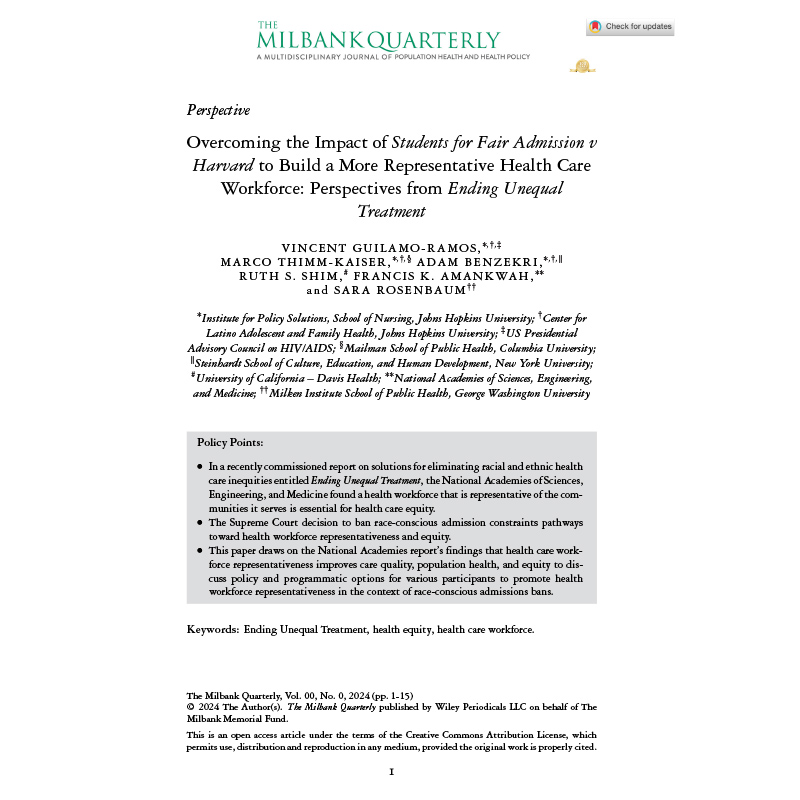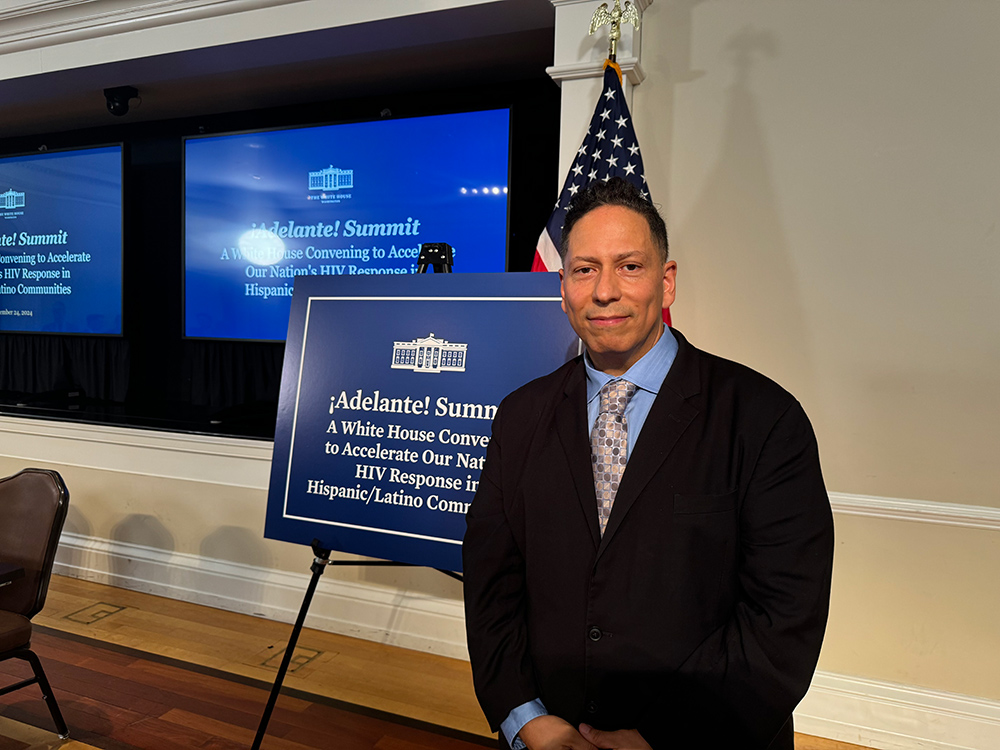SCOTUS decision “bad for America’s health” says new article
Latest | Home | About | Our People | CLAFH | Events | News | Stories | IPS Affiliates | Training
SCOTUS decision “bad for America’s health” says new article
In a first, a new article “Overcoming the Impact of Students for Fair Admission v Harvard to Build a More Representative Health Care Workforce: Perspectives from Ending Unequal Treatment” (Millbank Quarterly) shows how a less representative health care workforce — an impact of the Supreme Court of the United States’s decision that banned race‐conscious college admissions — is bad for America’s health.
“When health care providers are more representative of the populations they serve, the health outcomes are better for everyone. This means that when decisions get in the way of a more representative workforce, everyone’s health is negatively impacted,” said the lead author Prof. Vincent Guilamo-Ramos PhD RN, executive director of the Institute for Policy Solutions at Johns Hopkins School of Nursing. “The good news is we can help reverse this damage by redoubling our efforts to recruit and train underrepresented health professionals.”
The article points to action levers that will change the picture:
Exempt health professions education programs from the SCOTUS restrictions. This would limit the damage of the SCOTUS decision. It would also positively impact federal policy actions and vital programs that promote a representative workforce. Similarly, state-based initiatives could flourish.
Increase targeted funding. Loan Repayment Programs, Service‐Contingent Scholarship Programs and Pathway Programs improve workforce representativeness if they are specifically targeted to underrepresented entrants. More investment would improve results.
Institutes of higher education can do more. Higher education can further embrace, scaleup, and fund more programs and institutional partnerships to supercharge a more representative and diverse student body and faculty.
“Respectfully, we invite everyone (and especially Supreme Court Justices) to think about your health in new ways. Know that when health care is representative, it makes us all healthier,” Guilamo-Ramos said.

“We Can Reverse Latino HIV Crisis,” Guilamo-Ramos
White House ¡Adelante! Summit Spotlights Action, Leadership, Impact
WASHINGTON, D.C. — Prof. Vincent Guilamo-Ramos, PhD RN Executive Director of the Institute for Policy Solutions (IPS) at Johns Hopkins School of Nursing, joined a diverse group of leaders at the White House today to shine the spotlight on the largely invisible HIV crisis in the Latino community.
“Today’s ¡Adelante! Summit! is all about moving forward together — building on extraordinary overall progress in reducing HIV infections and now shifting focus to the invisible crisis among Latinos in the United States, where overall HIV infections have increased. The good news is that we can reverse this crisis and get even closer to a United States and world without HIV/AIDS. But we must act now,” Prof. Guilamo-Ramos stressed.
The ¡Adelante! Summit, hosted by the White House Office of National AIDS Policy, focused on amplifying diverse voices, driving tangible action, and mobilizing leadership for sustained impact.
Speakers included U.S. Secretary of Health and Human Services Xavier Becerra, Congressional HIV/AIDS Caucus Co-Chair U.S. Rep. Barbara Lee, Director of the White House Domestic Policy Council, Neera Tanden, Chief of the HIV Surveillance Branch at the U.S. Centers for Disease Control and Prevention Dr. Angela Hernandez, and an array of leaders at the forefront of community-driven programs and initiatives.

Prof. Vincent Guilamo-Ramos, PhD RN Executive Director of the Institute for Policy Solutions (IPS) at Johns Hopkins School of Nursing.
